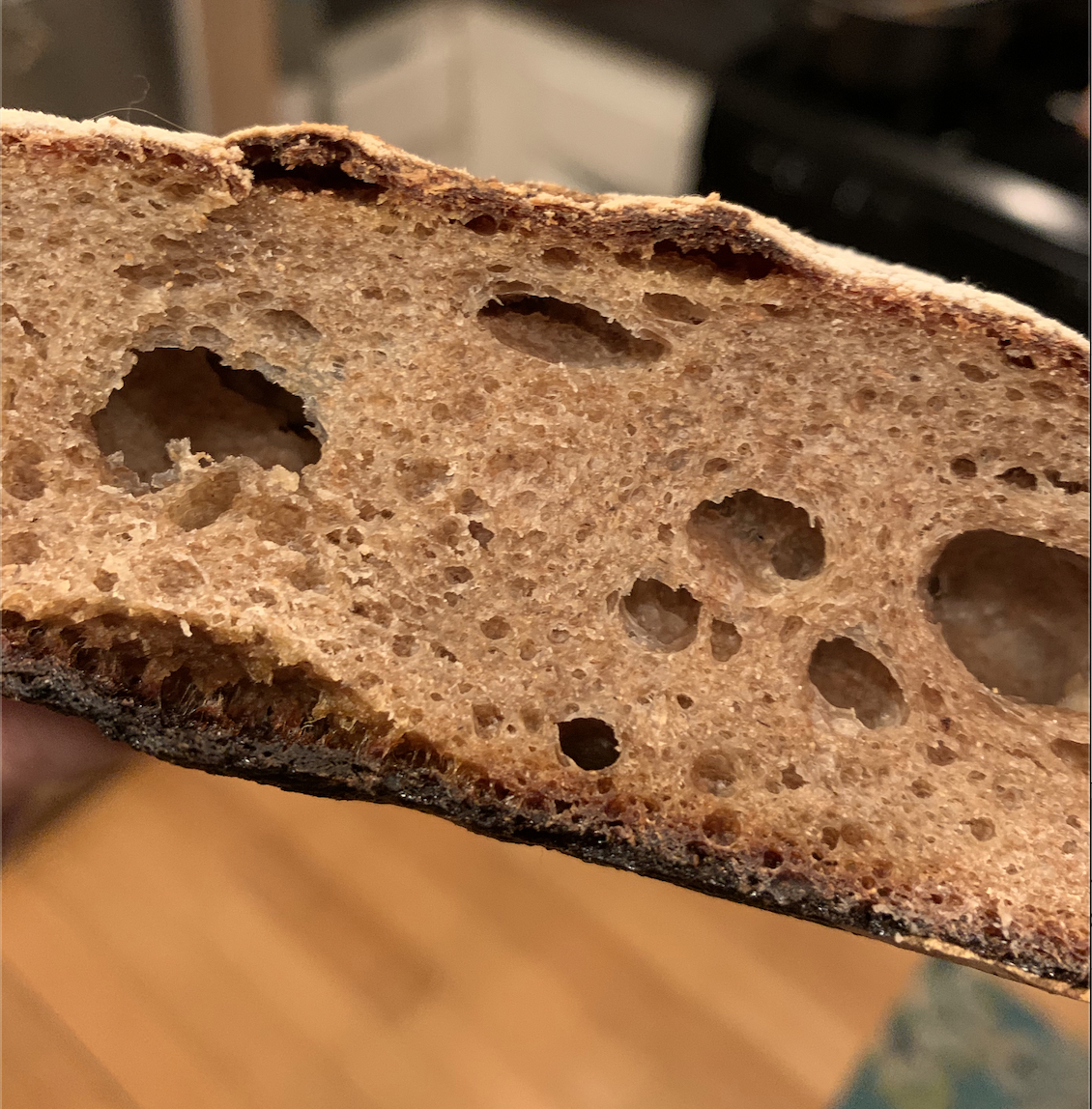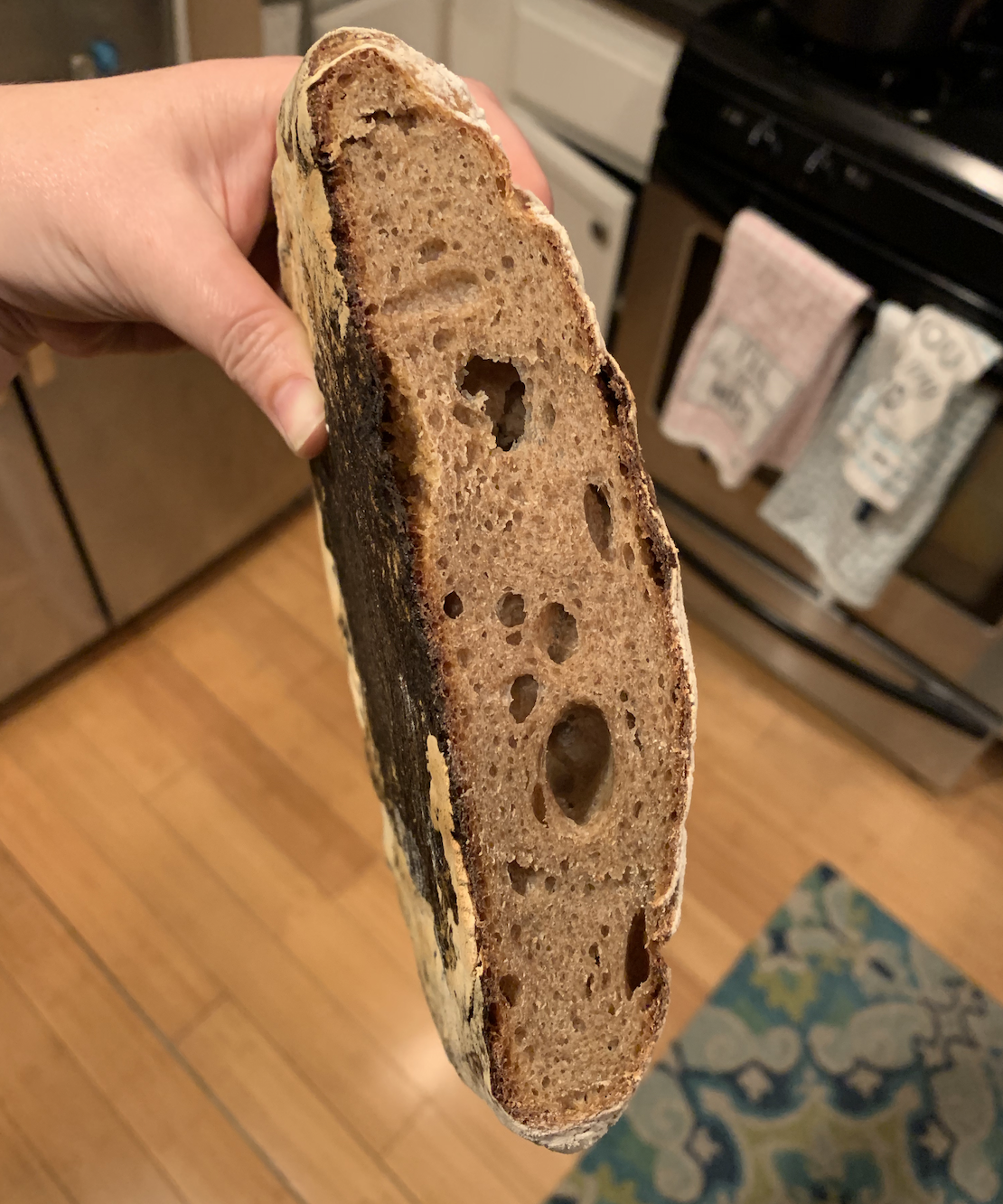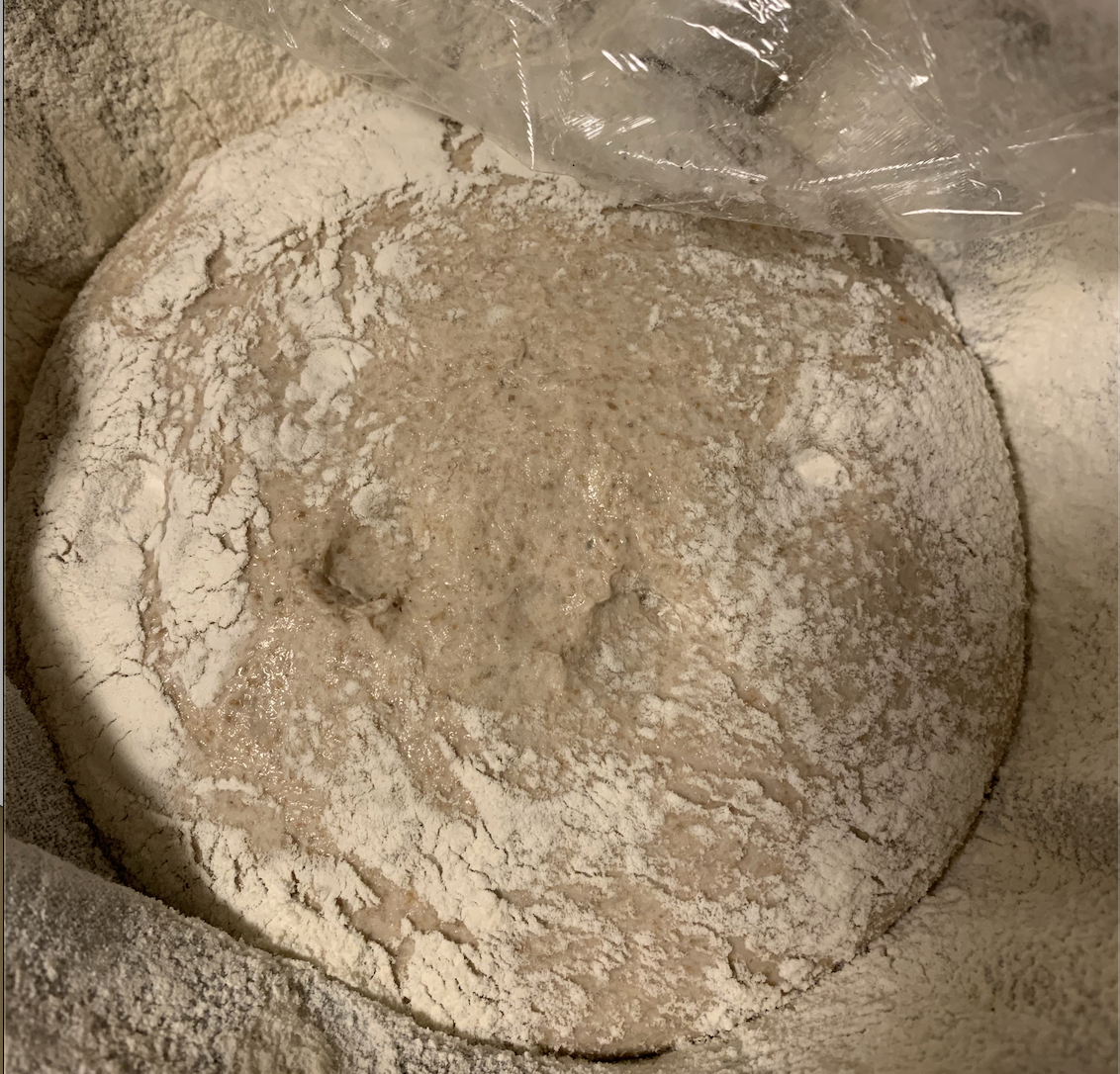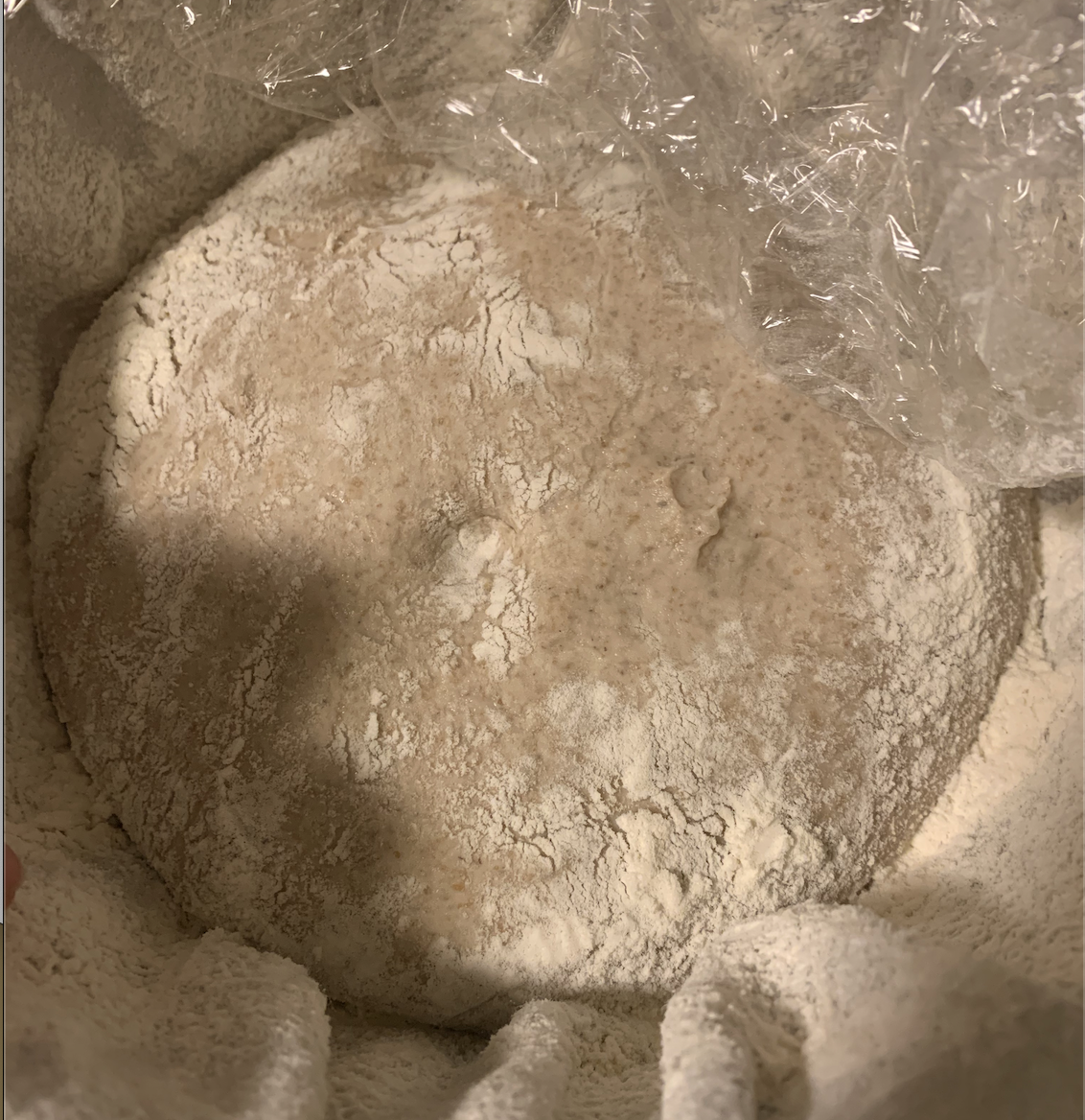
How long is too long for bulk fermentation? Second ever try at making sourdough
So I'll try to include as many details as I can:
First time making sourdough
Starter has been being fed regularly for 2 weeks and I've made one batch of bread (two loaves) before this that look similar so I'm thinking I have similar problems.
Recipe:
1000 g flour (500g unbleached bread flour, 250 g whole wheat flour, 250 g dark rye flour)
750g water (temp was 80 degrees F)
150 g starter (passed the float test)
20 g salt
Levain for 45 min with flour and water
Added starter and salt
2 hours stretch and fold (30 minute intervals)
Bulk fermentation in the fridge (I think this is where things went wrong since I had to leave it for 15 hours) while I went to work
Took it out of the fridge and let it bench rest for 30 min
Shaped it and let it rise and it's now been two hours at room temp (72-74 degrees F) and I just did the poke test and it sprang back a little but the whole remained and the dough still feels cold to the touch.
Any ideas? I DID make this batch a day after depleting my starter to make the first batch but it was really active when I went to use it this time. I'm including a photo of my first batch of bread since the same thing happened with this one.






Sourdough is quite different from Commercial Yeast. SD ferments much slower. Your dough was under fermented.
To determine the amount of levaining, the “Percentage of Pre-fermented Flour” (PPF) is calculated. To be completely accurate the amount of flour in the levain should be considered.
1000 (500 + 250 + 250) + 75 in the levain = 1075 Total Flour
To calculate the PPF. 75 / 1075 = ~07%
07% PPF is a fairly modest amount of SD. The PPF, the ambient temperature, and the types of flour are the most important considerations when determining the approximate fermentation time. The Bulk Ferment (BF) technically begins when the levain is mixed into the dough, so it appears the BF at room temperature lasted 2 hr. 45 min.. you mention 80F dough water. The ambient temperature is also very important to know. IMO, the dough was not BF at room temp long enough, therefore the microbes in your levain was unable to become active enough to populate and begin percolating. Once the dough was chilled in the refrigerator, the activity of the SD was slowed down greatly.
I suggest you consider a basic SD formula for your next attempt, probably using less or maybe no whole grain. Also a higher PPF would probably be a good idea. Nothing boost confidence more than success! I have failed enough to speak with authority on this. <LOL> After you gain a few good bakes you can move on to other challenges.
If you decide to bake a basic bread, let us know. We can make suggestions.
Keep posting and asking questions. We are here to help...
Danny
Ok, still confused but encouraged! Thank you for your input! Since this IS my first time I was trying to collect as much info as I could prior to my bake but apparently SD is a wily one.
So, to get a little clarity I used the term "levain" when I mean to call it "Autolyse". I didn't add any "extra" flour or create a levain, I just mixed flour, water, waited the 45 min and then added the starter, waited 30 minutes and began stretching and folding. SO since my collected knowledge is failing me, could you (or someone else) point me to a reliable first basic recipe? I'm suffering by not having any success. It's 75% discouraging 25% lets-figure-this-out determination.
What I've taken from your post is that I should probably use my quarantine time to just go start-to-finish on a loaf, use the levain method, and leave it at room temperature instead of using the refrigerator to do the BF? I'll also use entirely unbleached bread flour (that's what I have on hand since all the stores are out of flour) instead of using part whole wheat flour.
What is the basic SD formula and how do I employ it. Please, teach me your ways. lol.
Thank you again, I really appreciate your time :)
...with Bake With Jack's beginner recipe. This blog entry has the recipe and links to supporting videos. The only modification I made is to use 100g AP flour starter, 400g bread flour and 50g of whole wheat or rye flour. I made the change because it is nearly impossible to find rye flour in my area which makes maintaining a rye starter difficult.
I also recommend Jack's YouTube channel as a great source of straight forward and useful bread baking info.
Terry